Covid-19: homeschooling on the rise?

The number of parents pulling their children out of school temporarily due to the Covid-19 pandemic has increased in some parts of Switzerland. One of the main reasons: disagreement over masks and mass coronavirus testing.
Eight-year-old Liam has been taught at home since the autumn holidays last year. Although the family had thought about homeschooling for a while, the introduction of pandemic measures in the local primary school was the last straw.
“We discussed this with Liam, he doesn’t want these measures,” his mother Jasmin Salzmann told Swiss public television SRFExternal link earlier in January. She also worries about the effects of masks on learning. “The worst thing about masks is that you don’t see the expressions and the emotions. I should think it’s really hard to learn a language without seeing your discussion partner’s mouth,” she said.
She is not the only parent to have doubts over mask wearing. In canton Zurich, the number of children in temporary homeschooling has risen hugely since the beginning of the pandemic, according to recent statisticsExternal link obtained by SRF. In autumn 2019 it was 82 children – now it is 536 (although it is still a relatively small number of overall pupils).
There has been a particularly steep rise since December, when stricter school measures were introduced in the canton. “[These] measures have caused some parents to take their children out of school. But we also have parents who think the measures do not go far enough and keep their children at home for this reason,” Myriam Ziegler, head of the Zurich cantonal education department, told SRF.
The canton also has a fairly relaxed approach to homeschooling: special permission or teacher training is only required if homeschooling becomes long term – longer than a year. Not all cantons make it this easy (some require teacher training).
Other German-speaking cantons like Bern and Aargau have also reported a rise in enquiries about homeschooling, SRF reportsExternal link. A canton Bern spokesperson told SWI swissinfo.ch that questions and queries had increased since facemasks were introduced for younger pupils in January 2022.
‘Swiss way’
Switzerland, unlike its neighbours Germany and Italy, has largely kept its schools open during the coronavirus pandemic, except for a short shutdown in spring 2020. Masks have generally not been worn in primary schools – unless the local authorities deem it necessary.
For example, masks partly came back in the runup to Christmas 2021 when schools dealt with a huge wave of Delta coronavirus infections among primary-age pupils. Mass testing, which mostly involves saliva testing in groups (pools), was also used in many places, although some cantons have since stopped.
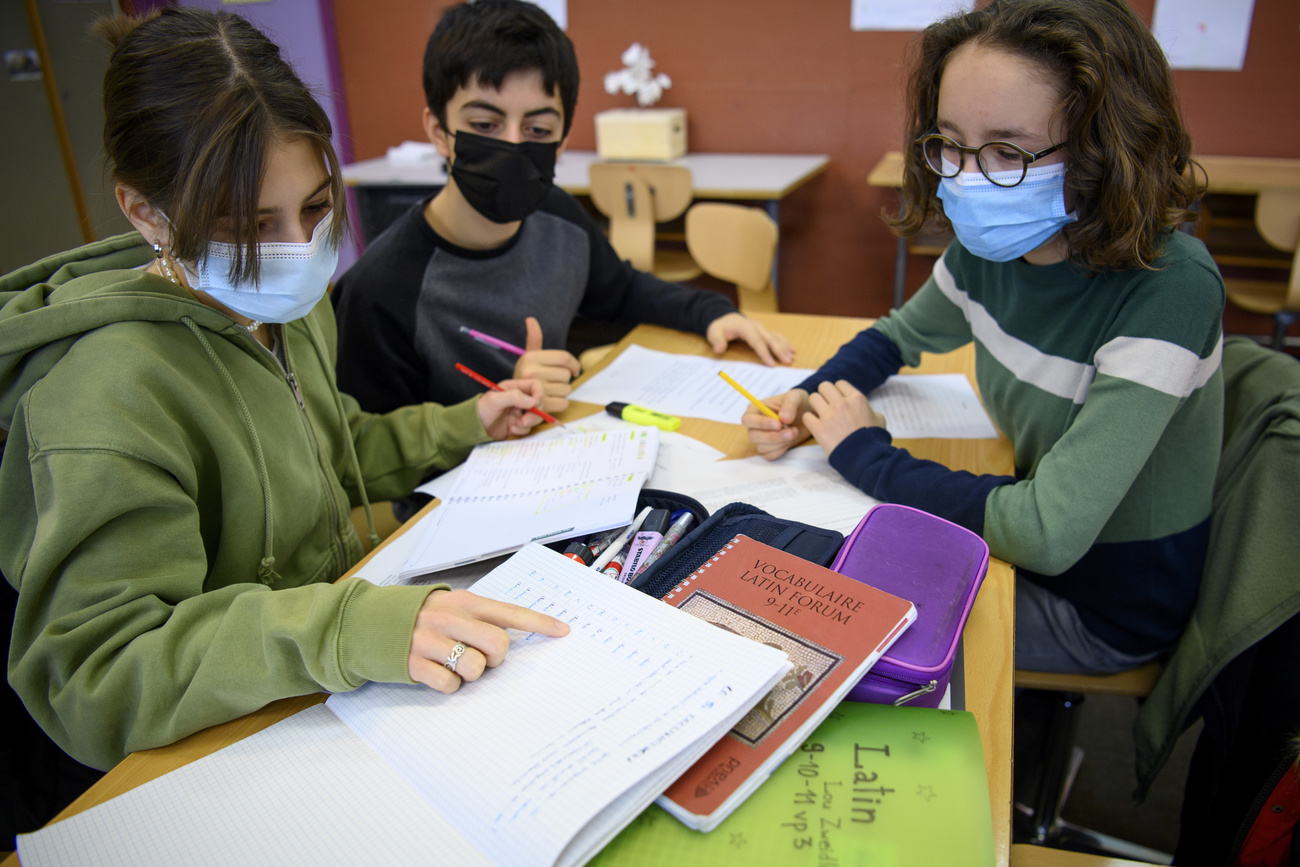
More
Teachers: urgent corona coordination needed for schools
Cantons have continued to make masks obligatory for many into January/February, as the newer Omicron variant continues its forward march across the country. However, as Switzerland is a federal country – cantons are in charge of educational matters, including Covid-related ones – there is a patchwork of measures in place across the country. For example, in Liam’s home canton of Zurich masks are obligatory from year 1 (aged six) and officials have just prolonged the measure until the winter half term (February 27) due to rising Omicron cases.
Regional differences
But in the French-speaking cantons, which have a coordinated approach, mask-wearing mostly applies to pupils aged eight upwardsExternal link (except Bern and Italian-speaking Ticino, where it is from aged six). On Thursday, the cantons of Valais, Fribourg and Vaud announced that pupils under 12 would be exempt from mask wearing from Monday January 31. Valais cantonal government minister Christophe Darbellay told Swiss public television RTSExternal link the reason was that Omicron was “considered more contagious but less dangerous”.
It seems that for now the interest towards temporary homeschooling is more pronounced in the German-speaking part of the country. “When schools went back after the Christmas holidays, there were some parents who didn’t send their children to school due to having to wear masks. But we are talking about several dozens of cases per cantons at maximum,” Samuel Rohrbach, the head of the Association of French-speaking Teachers (SER), told SWI swissinfo.ch.
“And after discussions with the authorities, families quickly changed their minds. There has therefore not been any real rise in home schooling.”
Depth of feeling
However, some parents have strong feelings about masks. This was seen at the beginning of 2022 when schools returned after the Christmas holidays, which saw several protests – even larger ones in cantons Bern and Ticino with some 500 people – around the country.

Petitions have also been drawn up.
Canton Bern announcedExternal link on January 20 that it was allowing parents who don’t want younger children (years 1-4) to wear masks to temporarily teach them at home, until mid-February.
A spokesperson told SWI swissinfo.ch via email that although obligatory masks from year 1 onwards had generally been very well received and implemented in the canton, there were “a few cases where resistant parents cause a great deal of effort for school administrators and school inspectorates”.
“This can put children in a difficult position between their parents and their teachers, who are both important caregivers for them. We are convinced that this measure will help ease the situation.”
Canton Zurich told SRF that it reckoned that many of the temporarily homeschooled children would return to school once the pandemic calms down.
But there will also be parents who will opt for homeschooling in non-pandemic times as well.
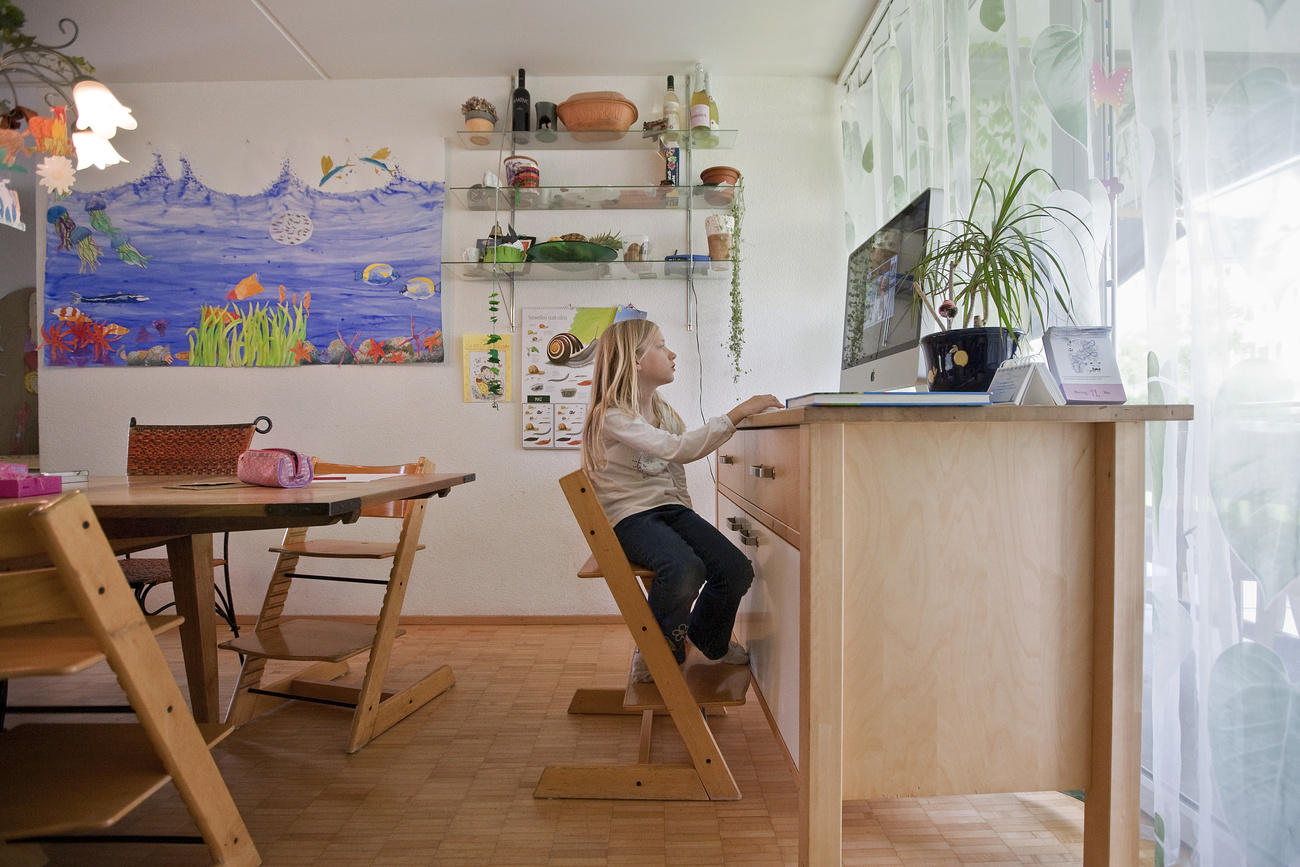
More
Why some Swiss parents are choosing to homeschool

In compliance with the JTI standards
More: SWI swissinfo.ch certified by the Journalism Trust Initiative









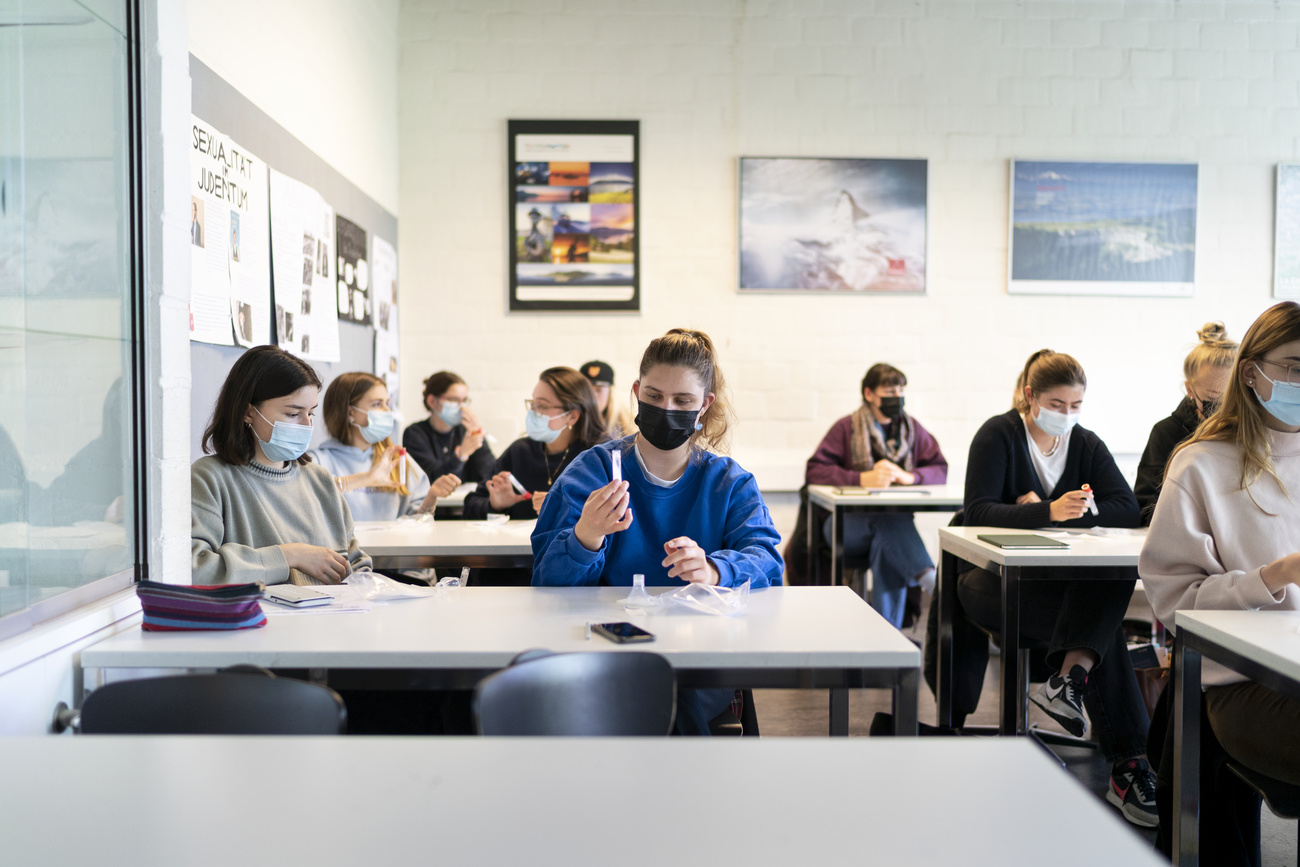
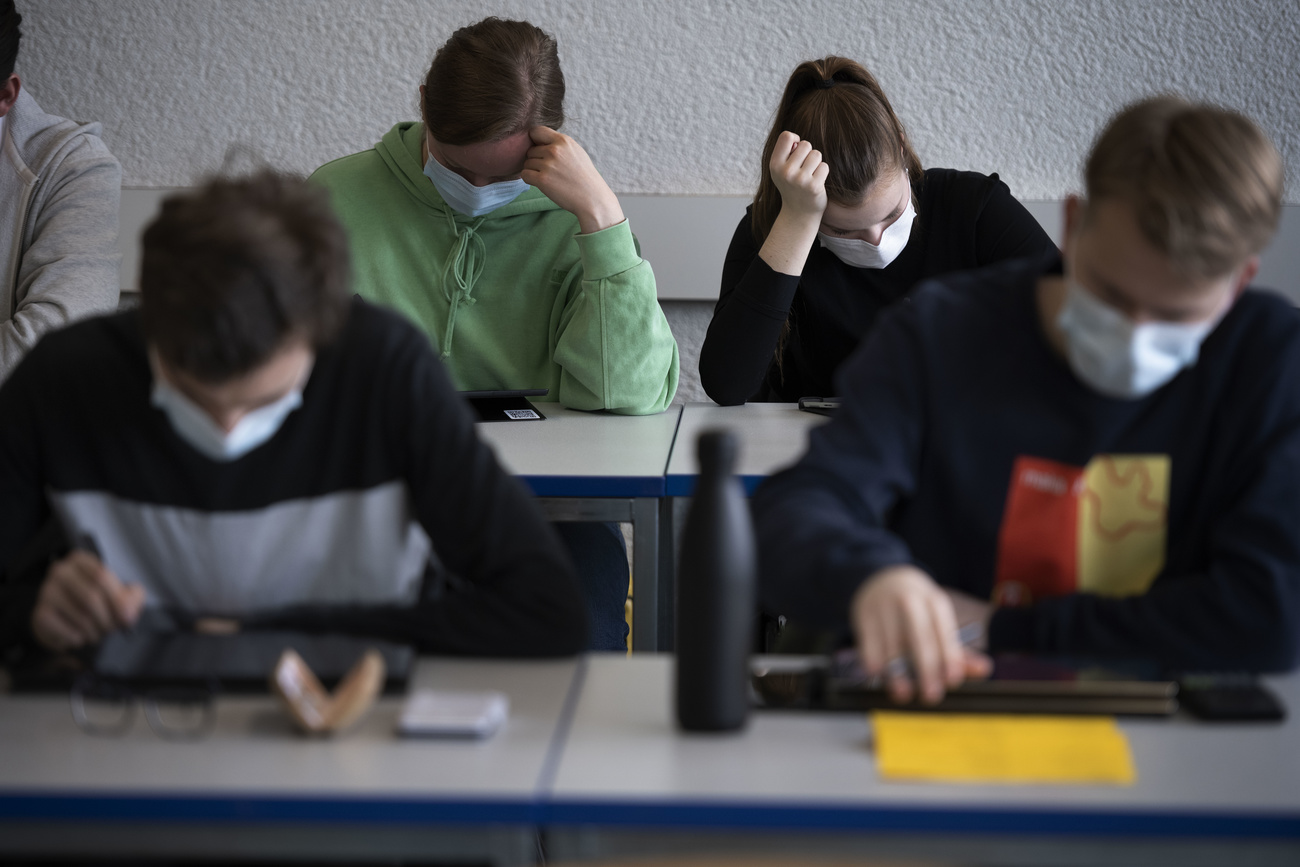
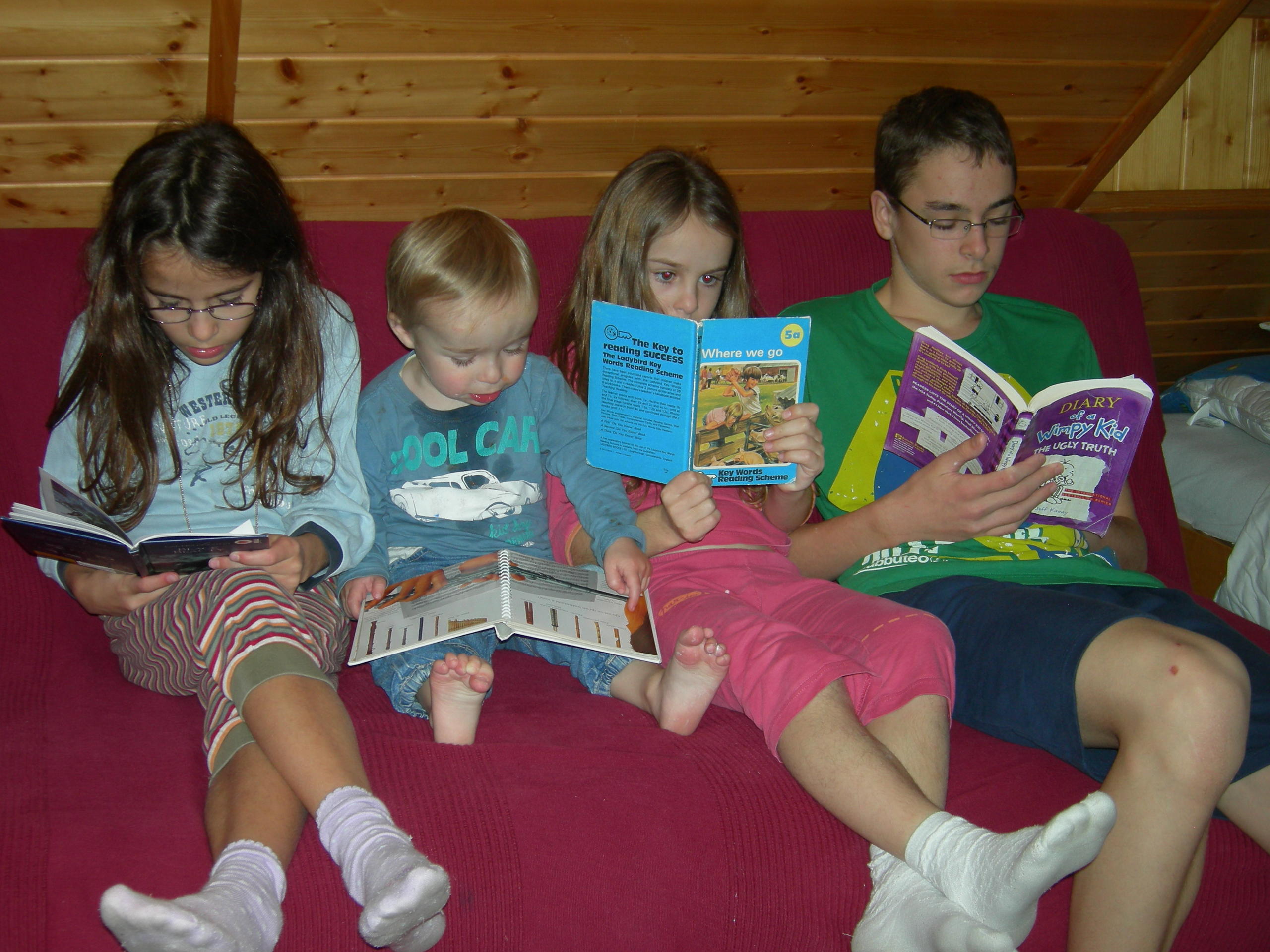
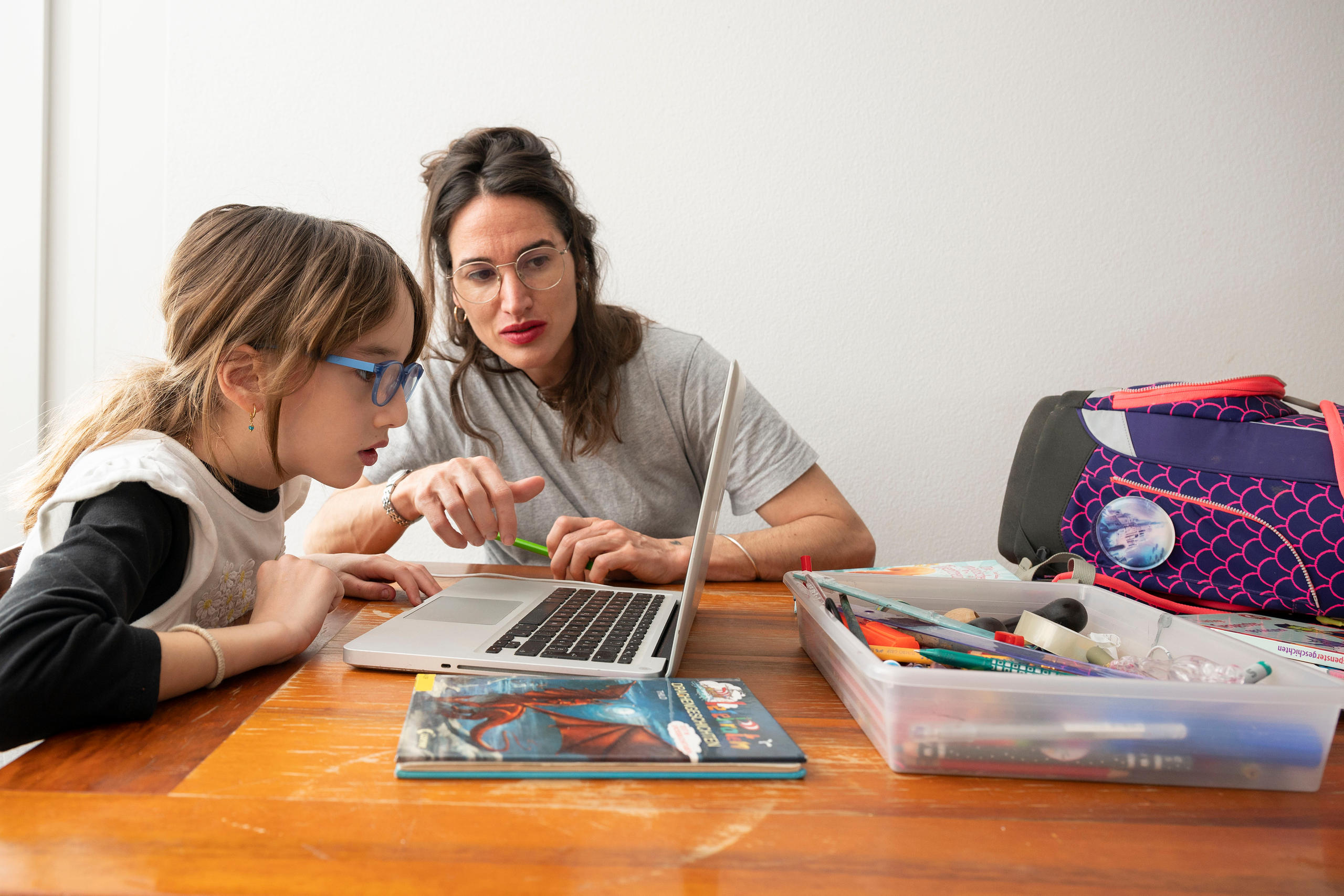
Join the conversation!